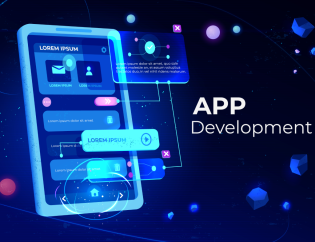
The software development landscape has evolved at a breakneck pace, with traditional techniques continually adapting to meet the demands of the digital age. One of the most transformative advancements in recent years has been the integration of Artificial Intelligence (AI) into the software development process. This synergy between AI and traditional software development techniques has brought forth a wave of benefits that are reshaping the industry.
1. Enhanced Efficiency and Speed:
AI-powered tools and algorithms streamline tasks that were once labor-intensive and time-consuming. Automated code generation, bug detection, and testing are just a few examples of areas where AI boosts productivity. Developers can now focus on creative problem-solving and innovation while leaving repetitive tasks to AI.
2. Improved Accuracy and Quality:
AI assists in code review and analysis, ensuring that software is not only delivered faster but also with fewer errors. Machine learning models can identify potential vulnerabilities and suggest improvements, leading to higher-quality software.
3. Predictive Analytics for Better Decision-Making:
AI analyzes vast datasets to provide insights into user behavior and preferences. This data-driven approach helps software developers make informed decisions about features, updates, and optimizations, ensuring that software aligns with user needs.
4. Personalization and User Experience:
AI tailors software experiences to individual users. Recommendations, adaptive interfaces, and chatbots are just a few AI-driven features that enhance user engagement and satisfaction.
5. Scalability and Adaptability:
AI technologies enable software to adapt to changing requirements and scale effortlessly. Cloud computing and AI-driven resource allocation ensure that software can handle increased workloads and user demands without major overhauls.
6. Cost Savings:
By automating repetitive tasks and optimizing resource allocation, AI reduces development and maintenance costs. It also minimizes the need for extensive manual testing and debugging.
7. Increased Security:
AI-powered cybersecurity tools can detect and respond to threats in real-time, bolstering software security and protecting sensitive data.
8. Continuous Learning and Improvement:
AI systems learn from each interaction, making software smarter and more capable over time. This continuous improvement ensures that software remains relevant and competitive in a rapidly changing landscape.
In conclusion, the integration of AI technology into traditional software development techniques is revolutionizing the industry. It enhances efficiency, improves quality, and provides valuable insights, ultimately leading to software that is more adaptive, secure, and user-centric. As AI continues to advance, its role in software development is set to grow, promising even more innovations and benefits for developers and end-users alike. Embracing AI is not just an option but a necessity for staying competitive and agile in today's dynamic tech landscape.









